Dope smokers face fines but no court procedure
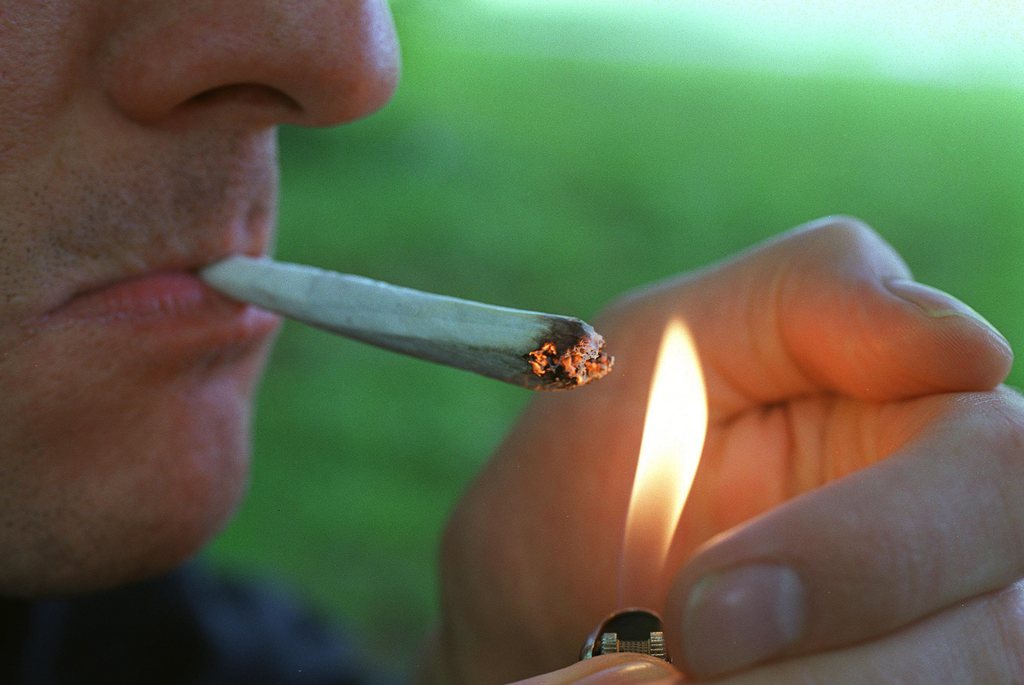
Parliament has agreed in principle to impose a fine on consumers of small amounts of cannabis instead of opening a mandatory criminal proceeding. The move stops short of a full legalisation of the substance.
Accepting liberalisation of the law by 31 votes to four, the Senate followed an earlier vote by the House of Representatives in parliament’s spring session.
The proposal, which dates back eight years, aims to decriminalise the consumption of up to ten grams of cannabis for consumers above the age of 18. However, both chambers still have to agree on the level of the financial penalty.
Most senators argued SFr100 ($103) was sufficient to discourage dope smokers, while the other chamber, which is due to continue the discussion on this point next week, opted for a tougher penalty of SFr200.
Proposals to limit the fine to SFr50 or to give police some discretion not to hand down a fine at all were thrown out.
Supporters of decriminalisation argued the move was in line with the government’s drugs strategy based on prevention, therapy, harm reduction and repression, which was introduced in 1998 and includes the prescription of heroin for hardcore addicts.
Several senators also pointed out that under age teenagers are excluded from fines and remain subject to a normal criminal procedure. Laws and their application in the country’s 26 cantons vary considerably and a streamlined regulation could help reduce the workload of courts which have to treat up to 30,000 cases every year it was said.
Small step
The proposal was a “small step to a more realistic approach to cannabis consumption and to improve the legal situation”, according to Social Democrat Geneva senator Liliane Maury Pasquier, who was backed by colleagues from centre-right parties, including Felix Gutzwiller from Zurich.
An estimated 500,000 mostly young people in Switzerland are believed to smoke cannabis occasionally or on a regular basis.
The debate took a turn to the surreal, when it began to focus on whether ten grams constituted a small or considerable amount.
Peter Föhn, representing canton Schwyz for the Swiss People’s Party, warned of underestimating the dangers of cannabis for apprentices, arguing ten grams of dope was much more than just a negligible amount.
“Ten grams make at least 100 joints. It can easily be twice as much,” adding – like all the other speakers in the senate – that he had no personal experience in the matter however.
However, Roberto Zanetti, senator from Solothurn, reminded Föhn of his rather liberal attitude to alcohol during a parliamentary debate eight years ago and appealed to him to desist from applying double standards.
“And I can assure my colleague, from hearsay and not personal experience of course, that ten grams of cannabis spread over 100 joints make at best ‘diet joints’ which are relatively harmless,” Zanetti said.
Mixed history
Switzerland could join other European countries which have decriminalised pot smoking, besides those which tolerate cannabis consumption in small amounts or have even legalised it.
Four years ago, Swiss voters threw out a proposal to legalise the possession, consumption and controlled trade in cannabis.
Back in 2004, parliament even refused to discuss the issue. An initiative by the centre-right Christian Democrats put it back on the parliamentary agenda.
A debate in the House of Representatives in March found a majority in favour of a decriminalisation. But conservative representatives insisted on tightening an initial draft, setting higher fines and removing any police discretion.
Illegal hemp plantations have regularly made local news in Switzerland over past decades.
Activist and hemp farmer Bernard Rappaz appeared in court last month over a prison sentence handed down last year. He staged a hunger strike in 2010, prompting nationwide attention and an appeal by the European Court of Human Rights.
Legalisation. Drugs have not been legalised anywhere in the world. Legalisation would mean the freedom to produce, sell, buy and consume drugs just like alcohol, tobacco and medicines.
Decriminalisation. Under this approach, possession and consumption of small quantities do not lead to prosecution but generally to a fine. Legally equivalent to a parking offence.
Most countries in western Europe, as well as Canada and Latin America, to a large degree tolerate the use of small amounts or have decriminalised it.
Four pillar policy. Switzerland pioneered the four pillar drugs strategy, including the prescription of heroin for hardcore addicts, in the 1990s.

In compliance with the JTI standards
More: SWI swissinfo.ch certified by the Journalism Trust Initiative

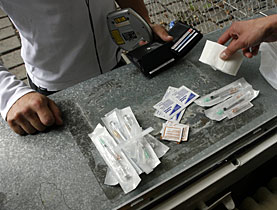
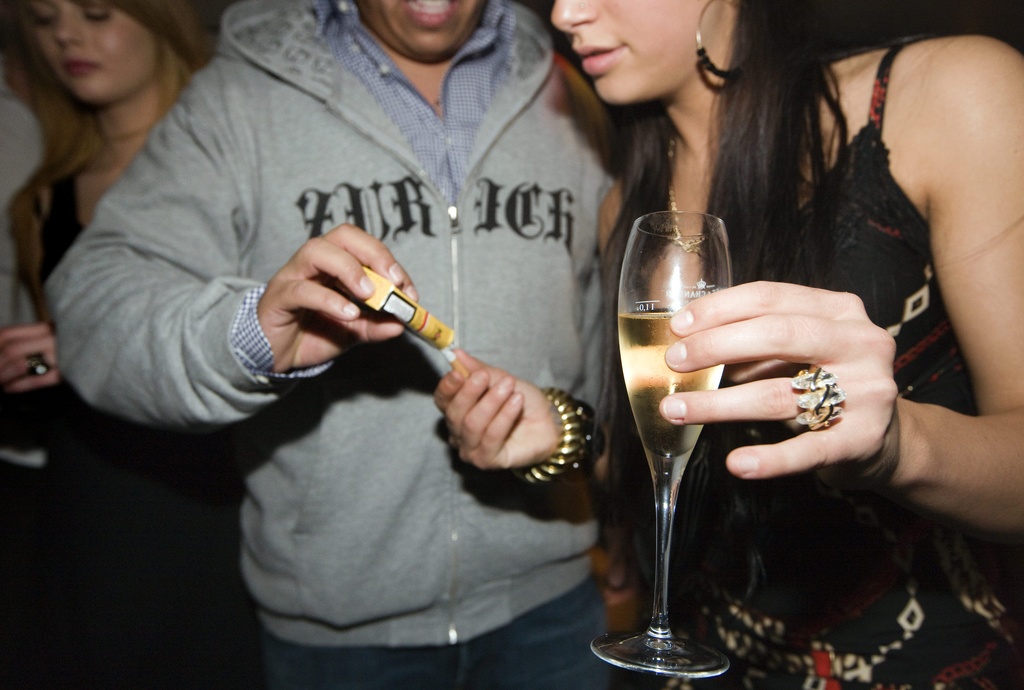
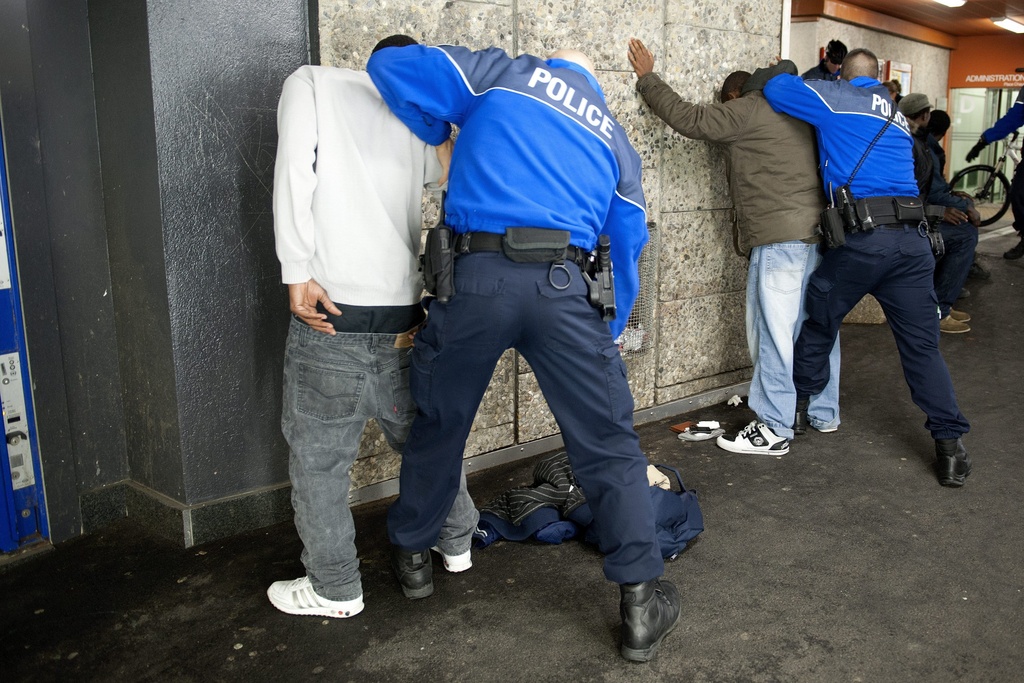
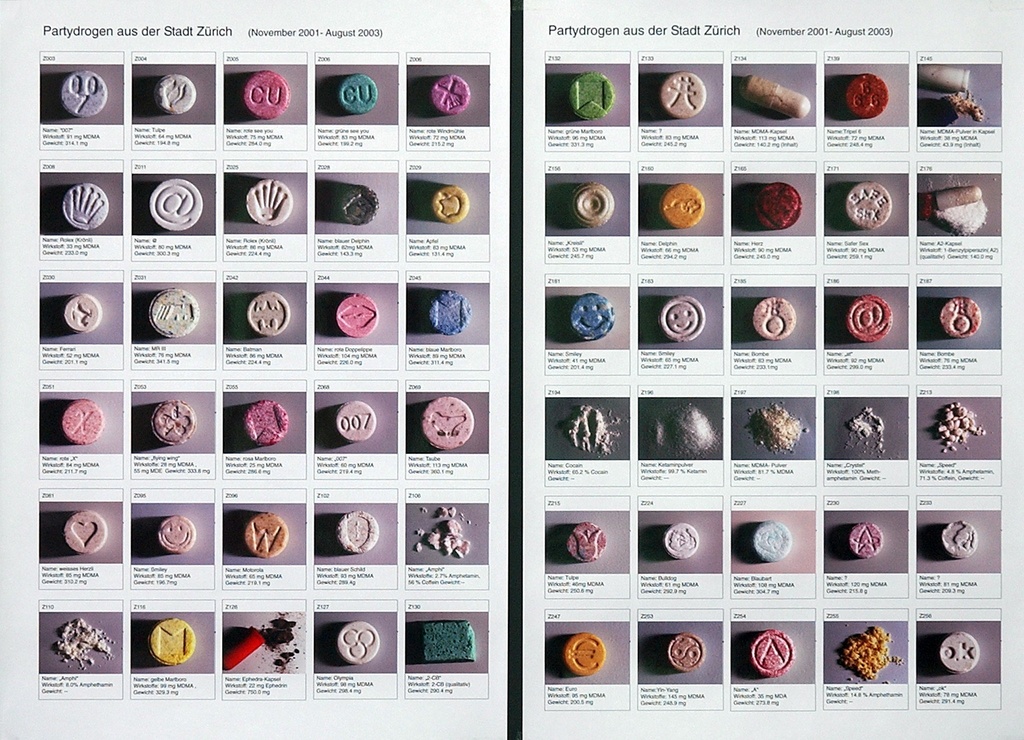
You can find an overview of ongoing debates with our journalists here. Please join us!
If you want to start a conversation about a topic raised in this article or want to report factual errors, email us at english@swissinfo.ch.